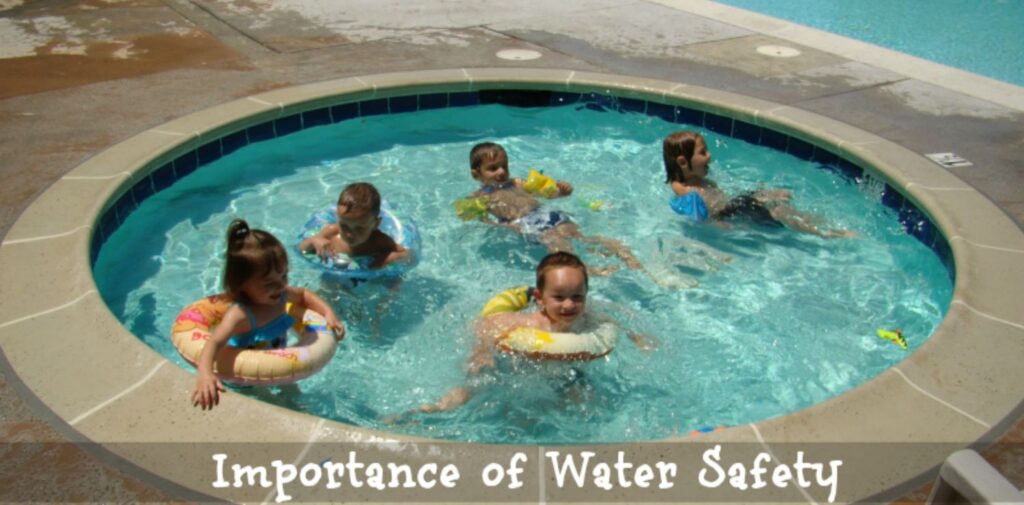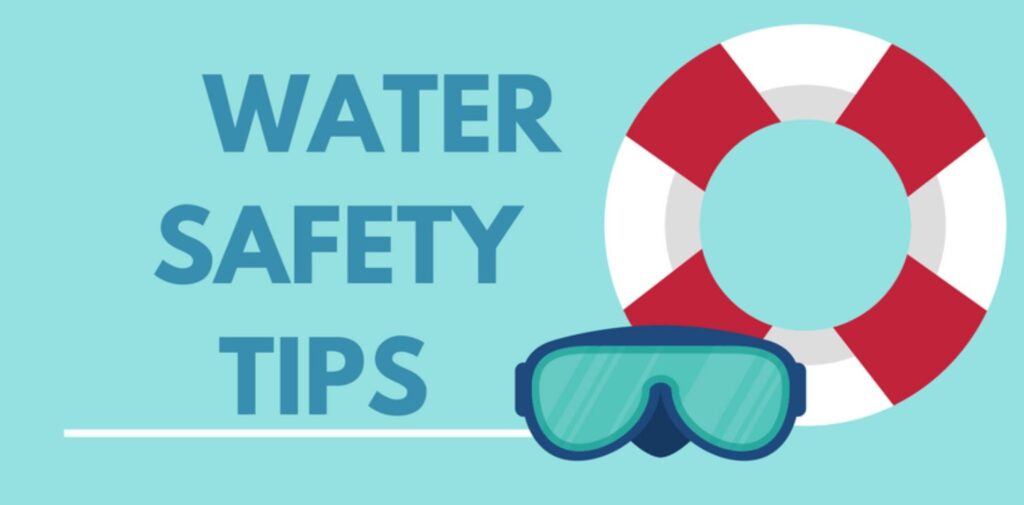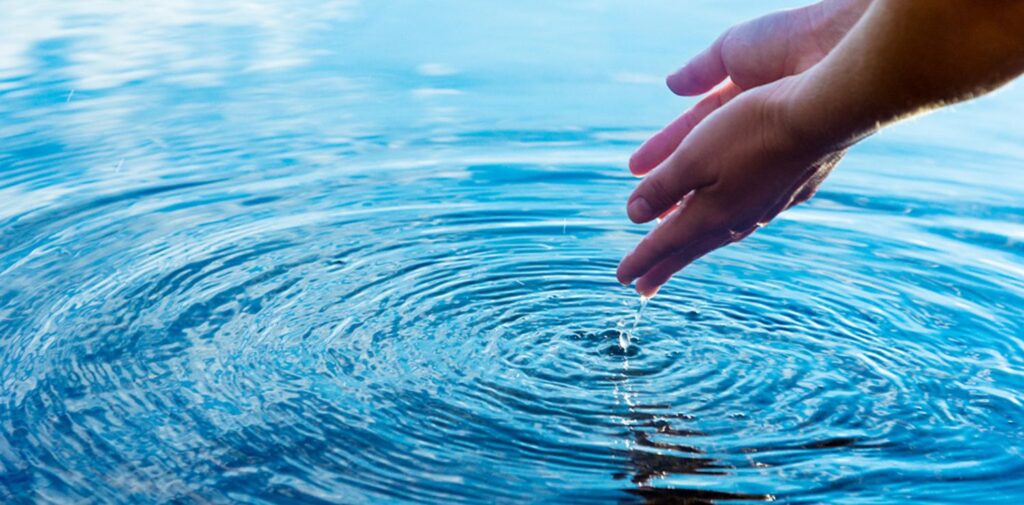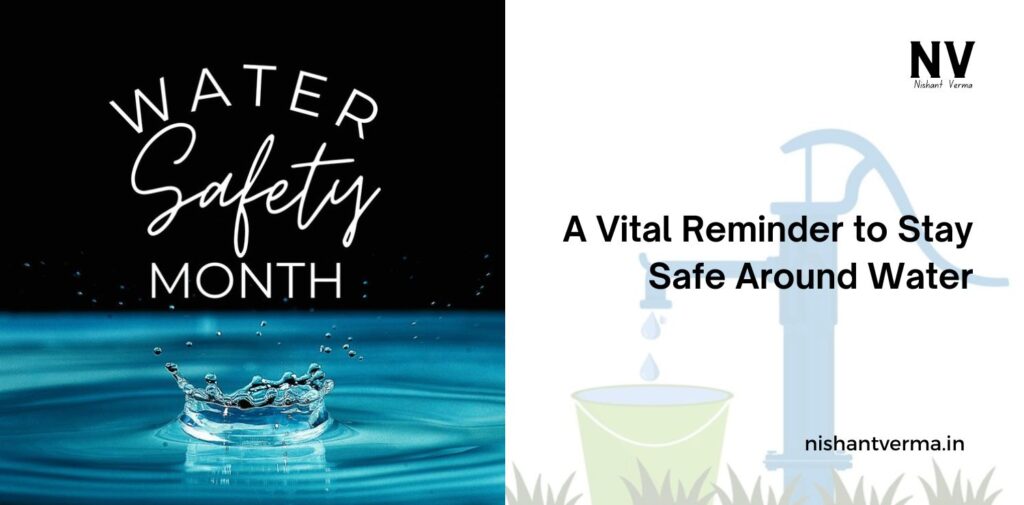Water is an essential part of life, providing hydration, recreation, and the beauty of nature. However, it also poses risks if not handled carefully. This is why Water Safety Month, observed every May, is an important time to raise awareness about water safety and educate people on how to prevent accidents in and around water.
In India, where water bodies like rivers, lakes, ponds, and the coastline are an integral part of daily life and culture, water safety is particularly crucial. Many people enjoy water-based activities, such as swimming, boating, fishing, and even walking along the banks of rivers, which are common in rural and urban settings alike. However, drowning and other water-related accidents continue to be a leading cause of injury and death, especially in children and young adults. Water Safety Month aims to reduce these risks through education, awareness campaigns, and promoting safe practices.

The Importance of Water Safety
Water safety is not just about preventing drowning; it also involves being cautious around pools, rivers, beaches, and lakes to avoid accidents. In India, the rising number of people visiting swimming pools, rivers, and lakes for leisure activities increases the risk of accidents, especially among those who are not familiar with swimming or basic water safety principles.
Water-related accidents often happen unexpectedly, and it’s essential to be well-prepared. Understanding basic water safety measures can help avoid these dangerous situations. Water Safety Month is a reminder to everyone—whether you’re at the beach, on a riverbank, in a pool, or even in your own backyard—to be mindful and prioritize safety.

Key Water Safety Tips
- Learn to Swim: One of the most important steps towards water safety is learning how to swim. Swimming is not only a fun activity but also a life-saving skill. It’s essential for both children and adults. Many communities and schools in India are now offering swimming classes. These classes can teach you how to float, breathe properly, and swim in various water conditions.
- Supervision is Key: Always keep a close watch on children, especially when they are near any water. Whether it’s at a pool, river, or beach, young children are at a higher risk of drowning if left unsupervised for even a short time. In India, children often play near rivers or ponds, so it’s important for parents or guardians to be extra vigilant.
- Use Life Jackets: When swimming in open water (like lakes, rivers, or the sea), it’s always a good idea to wear a life jacket, especially if you’re not a strong swimmer. Life jackets are essential for boating, jet skiing, and other water sports. Even experienced swimmers should consider wearing one in unfamiliar waters, where currents or waves can surprise you.
- Know the Water Conditions: Whether you’re swimming, boating, or simply enjoying the water, it’s essential to be aware of the water conditions. Strong currents, waves, or tides can be dangerous. Before getting into the water, check for any warnings or updates about the weather and water conditions. In India, where monsoons bring strong river currents and rising water levels, this advice is especially important.
- Follow Pool Rules: If you’re swimming in a pool, always follow the pool’s rules. These rules are there to protect everyone’s safety. For example, running near a pool can cause you to slip and fall, and diving in shallow water can lead to serious injury. Make sure that your children understand and follow pool rules.
- Stay Sober Around Water: Alcohol and water activities do not mix. Consuming alcohol can impair your judgment, coordination, and reaction times, making you more susceptible to accidents. This applies to both swimming and water sports. Always stay sober and alert when engaging in any water-related activity.
- Avoid Swimming Alone: Always swim with a buddy or in areas with lifeguards. Swimming alone increases the risk of accidents, and if something happens, you may not have anyone to help. Many swimming accidents occur because the swimmer is alone and unable to call for help. In India, public pools and beach areas often have lifeguards, so it’s best to swim where help is nearby.
- Be Mindful of Weather: Sudden storms and changes in weather can make water activities dangerous. If you’re planning to swim or participate in water sports, check the weather forecast beforehand. If you’re already in the water when the weather changes, get out immediately to avoid strong currents, lightning, or rough waves.

How India Can Benefit from Water Safety Month
Water Safety Month is an opportunity for communities in India to come together and promote safety around water. In a country with vast coastlines, rivers, and lakes, water safety education is critical for preventing accidents and saving lives. Here are some ways Water Safety Month can have a positive impact in India:
- Public Awareness Campaigns: Government and non-governmental organizations can use this month to run campaigns in local languages, targeting communities that are unaware of basic water safety practices. In rural areas, where access to swimming lessons and water safety information may be limited, these campaigns can have a significant impact.
- School Programs: Schools can incorporate water safety education into their curriculum. Teaching children about the risks of water, the importance of swimming, and the safety measures they should follow can have a long-lasting impact. Schools could even organize swimming lessons or field trips to local pools or beaches, where students can learn how to be safe in and around water.
- Community-Based Programs: Local community centers or clubs can organize swimming classes, water safety workshops, and poolside demonstrations. In regions with large water bodies, these programs can reach a wider audience and promote safety awareness.
- Promoting Water Sports Safely: India has a rich tradition of water-based sports, from rowing to sailing to surfing. However, safety guidelines should always be emphasized. By promoting these sports in a safe way, Water Safety Month can inspire people to enjoy water sports responsibly.
Conclusion
Water Safety Month is a reminder to everyone, whether in India or elsewhere, that we must be mindful of the risks associated with water. By promoting awareness, education, and safety practices, we can prevent water-related accidents and save lives. Whether you live in a bustling city or a quiet village near a river, these water safety tips are essential to ensure that everyone can enjoy water activities without putting themselves in danger.
As we celebrate Water Safety Month, let’s remember that safety should always come first. From swimming lessons to wearing life jackets, simple steps can make a huge difference in preventing accidents and ensuring a safe and enjoyable experience in and around water.




